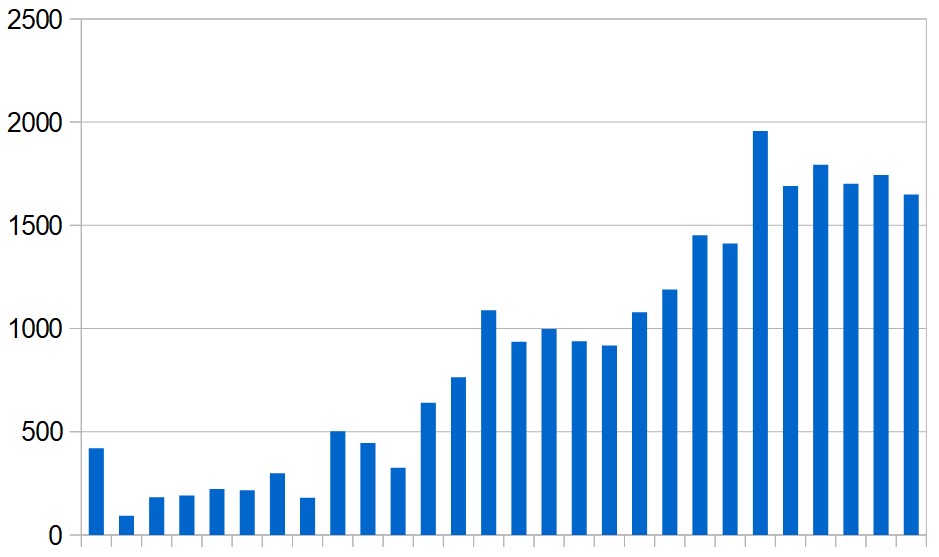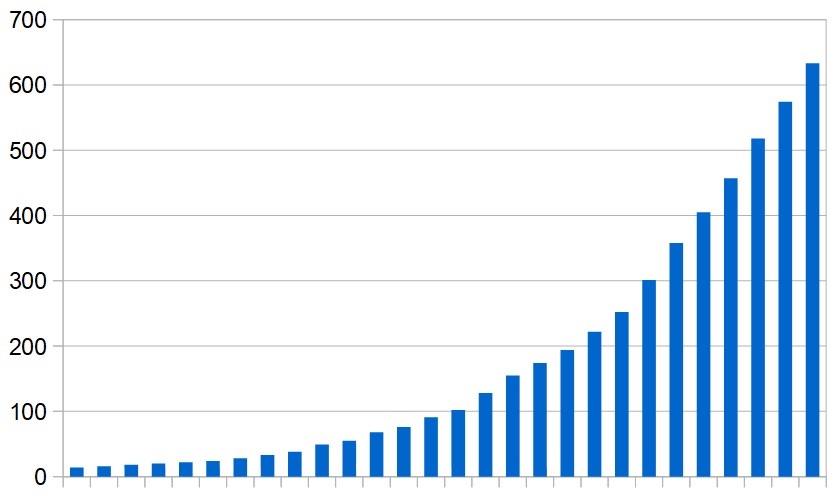The Saudi government warned yesterday that Covid-19 infections in the kingdom could rise to 200,000 over the next few weeks – more than 70 times the current official figure – and appealed for more cooperation from the public.
Restrictions on movement and social contact in Saudi Arabia are not having the desired effect because they are widely flouted. Road traffic, for example, is still at 46% of the normal level – which is considered far too high.
Health minister Tawfiq al-Rabiah accused "a section of society" of not taking the preventive measures seriously, and the ministry's spokesperson said:
“If people fail to hold fast to the instructions over the coming months, hundreds of thousands will be vulnerable to infection, and the health system will collapse as we have seen in major countries and this is not an imaginary scenario.”
Expert studies predict a minimum of 10,000 cases and a maximum of 200,000 in the kingdom over the next few weeks. Whether it's the lower figure or the higher figure will depend on how fully the public complies with preventive measures, the minister indicated.
“We stand today at a decisive moment as a society in raising our sense of responsibility and contributing together with determination to stop the spread of this pandemic,” the minister said.
On Monday, the authorities extended a 24-hour curfew to cover more parts of the kingdom, including the capital, Riyadh. In other areas they brought forward the start of the night-time curfew from 7pm to 3pm.
A slogan promoted by the Saudi government is "We are all responsible" and it signals what in much of the Middle East is a rather novel idea of partnership between states and their citizens. Autocratic rulers are beginning to realise that they can't make the virus go away by diktat and if disaster is to be avoided they need to engage with the public far more than they have been willing to do in the past.
Regional round-up
New cases:
Iran reported a further 2,089 Covid-19 infections yesterday – the lowest daily figure this month, continuing the downward trend since new cases peaked on March 30.
In the rest of the Middle East and North Africa region 1,649 new cases have been reported since yesterday's update, bringing the total to 25,602.
Israel has the highest number of new cases (401), followed by the UAE (283) and Qatar (225).
The list below shows cumulative totals since the outbreak began, with day-on-day increases in brackets:
Algeria 1,468 (+45)
Bahrain 811 (+55)
Egypt 1,450 (+128)
Iraq 1,122 (+91)
Israel 9,404 (+401)
Jordan 353 (+4)
Kuwait 743 (+78)
Lebanon 548 (+7)
Libya 20 (+2)
Morocco 1,184 (+64)
Oman 371 (+40)
Palestine 261 (+7)
Qatar 2,057 (+225)
Saudi Arabia 2,795 (+190)
Sudan 14 (+2)
Syria 19 (-)
Tunisia 623 (+27)
UAE 2,359 (+283)
TOTAL: 25,602 (+1,649)

Death toll:
Iran reported a further 133 coronavirus-related deaths yesterday – slightly below the daily average of the last two weeks.
Across the rest of the region 59 deaths were reported, bringing the total to 633. The largest number of additional deaths was in Algeria (20), followed by Israel (12) and Morocco (10).
This is the current list:
Algeria 193 (+20)
Bahrain 4 (-)
Egypt 94 (+9)
Iraq 65 (+1)
Israel 71 (+12)
Jordan 6 (-)
Kuwait 1 (-)
Lebanon 19 (-)
Morocco 90 (+10)
Oman 2 (-)
Palestine 1 (-)
Qatar 6 (+2)
Saudi Arabia 41 (+3)
Sudan 2 (-)
Syria 2 (-)
Tunisia 23 (+1)
UAE 12 (+1)
TOTAL: 633 (+59)

CLICK HERE for previous updates
For anyone interested: A spreadsheet documenting the new coronavirus cases and deaths reported in the region each day can be viewed here.

 RSS Feed
RSS Feed
